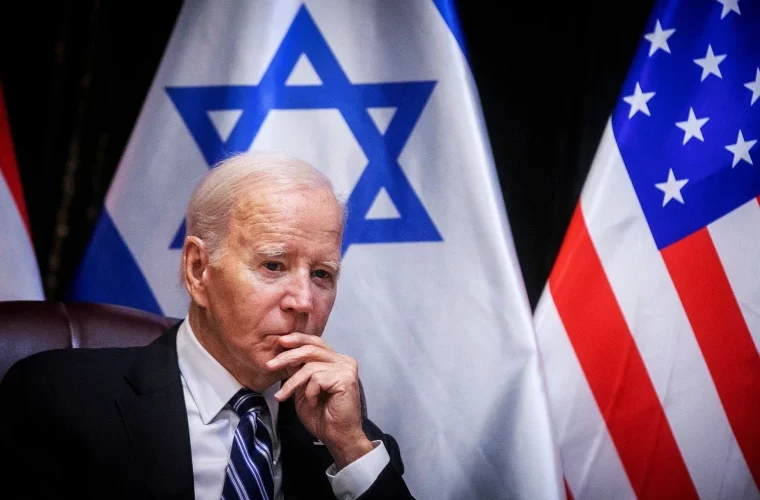The recent Gaza peace plan proposed by President Joe Biden has sparked a range of reactions from key Palestinian factions, notably Hamas and Islamic Jihad. Both groups have historically played central roles in the conflict with Israel and have substantial influence over the situation in Gaza. This article delves into their responses, analyzing the potential impacts on regional stability and the broader peace process.
Background of Biden’s Gaza Peace Plan

President Biden’s Gaza peace plan aims to address the longstanding Israeli-Palestinian conflict by promoting a two-state solution, enhancing economic development, and ensuring security for both Israelis and Palestinians. Key elements of the plan include:
- Establishment of Two States: A commitment to the creation of an independent Palestinian state alongside Israel.
- Economic Development: Investment in Gaza’s infrastructure and economy to improve living conditions and reduce poverty.
- Security Guarantees: Measures to ensure the security of both Israeli and Palestinian populations, including demilitarization efforts and international monitoring.
The plan reflects a balanced approach, seeking to address humanitarian concerns while ensuring regional security.
Hamas’ Response to the Peace Plan
Political Rejection
Hamas, the Islamist militant group that governs Gaza, has categorically rejected Biden’s peace plan. Their primary objections center on the perceived imbalance in favor of Israeli interests and the conditions imposed on Palestinian sovereignty. Hamas leaders argue that the plan does not adequately address the core issues of the Israeli occupation, the right of return for Palestinian refugees, and the status of Jerusalem.
Calls for Resistance
In response to the plan, Hamas has intensified its rhetoric of resistance. They have called for renewed efforts to oppose what they describe as an unjust and biased proposal. This includes potential escalation of military actions against Israel, as seen in increased rocket attacks and calls for popular uprisings.
Impact on Gaza’s Humanitarian Situation
Hamas’ rejection of the peace plan may have severe implications for the humanitarian situation in Gaza. The refusal to engage in negotiations could lead to continued or even intensified blockades and sanctions, exacerbating the already dire living conditions. This stance risks alienating international donors and reducing the flow of much-needed humanitarian aid.
Islamic Jihad’s Response to the Peace Plan
Firm Opposition
Islamic Jihad, a smaller but highly influential militant group in Gaza, has also firmly opposed Biden’s peace plan. They share Hamas’ view that the plan favors Israel and undermines Palestinian rights. Islamic Jihad’s rejection is rooted in their commitment to armed struggle as the primary means of achieving Palestinian statehood.
Increased Militancy
Islamic Jihad has responded to the peace plan with a pledge to increase militant activities. They have vowed to continue their attacks on Israeli targets, considering any peace efforts that do not meet their demands as illegitimate. This stance is likely to lead to an escalation of violence in the region, further complicating peace efforts.
Humanitarian Concerns
The stance of Islamic Jihad, like that of Hamas, poses significant risks to the humanitarian situation in Gaza. Increased militancy can lead to harsher Israeli military responses and tighter blockades, worsening the plight of civilians. The group’s refusal to negotiate also hampers potential international efforts to provide aid and improve living conditions.
Comparative Analysis of Responses
Table 1: Analysis of Hamas and Islamic Jihad Responses
| Aspect | Hamas’ Response | Islamic Jihad’s Response |
|---|---|---|
| Political Stance | Rejection of the plan; calls for resistance | Firm opposition; commitment to armed struggle |
| Key Objections | Imbalance favoring Israel; sovereignty concerns | Plan favors Israel; undermines armed struggle |
| Military Actions | Increased rocket attacks; calls for uprisings | Pledge to increase attacks on Israeli targets |
| Humanitarian Impact | Potential exacerbation of blockades and sanctions | Risks of harsher military responses; tighter blockades |
| Engagement in Peace Process | Refusal to negotiate; demands full rights | Refusal to negotiate; focus on armed resistance |
Comparative Table of Impact on Gaza and Regional Stability
| Factor | Hamas’ Impact | Islamic Jihad’s Impact | Combined Impact |
|---|---|---|---|
| Humanitarian Situation | Potential worsening due to blockade/sanctions | Deterioration from increased violence | Severe humanitarian crisis; increased suffering |
| Regional Stability | Escalation of conflict; potential for broader clashes | Heightened tensions; risk of wider conflict | Significant destabilization; threat to regional peace |
| International Relations | Strained relations with potential donors | Alienation of international community | Decreased international support; isolation |
| Prospects for Peace | Reduced likelihood of negotiated settlement | Near impossibility of peace talks | Dim prospects for peace; prolonged conflict |
Conclusion
The responses of Hamas and Islamic Jihad to Biden’s Gaza peace plan highlight the significant challenges facing the peace process. Both groups’ rejection and increased militancy pose severe risks to regional stability and the humanitarian situation in Gaza. Their stances underscore the complexities of achieving a sustainable peace agreement that satisfies all parties involved. Moving forward, it will be crucial for international mediators to address the concerns of these groups while striving to foster an environment conducive to negotiations and peace.












